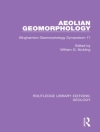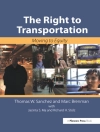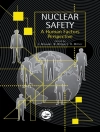How to progress climate science to be policy-relevant and actionable? This book presents a novel framework to give a positive vision and structuring approach to guide research and practice on transformative climate governance, to shift the narrative from apathy and stalemate to action and transformation. Our vision contrasts existing climate governance and associated lock-ins that signify the institutional resistance to change. To effectively address climate change, climate governance itself needs to be transformed to foster sustainability transitions under climate change.
The book brings together a collection of case studies to investigate how capacities for transformative climate governance are developing at multiple scales and how they can be strengthened vis-à-vis existing governance regimes. Specifically, it sheds light on the following questions: What are key overarching conditions, actors and activities that facilitate governance fortransformation under climate change? Given persistent climate governance lock-ins, what needs to happen in research and policy to build-up the capacities that transform climate governance and ensure effective climate action?
表中的内容
Chapter 1 A transformative perspective on climate change and climate governance.- Chapter 2 Capacities for transformative climate governance: a conceptual framework.- Chapter 3 Transforming cities and science for climate change resilience in the Anthropocene.- Chapter 4 Navigating transformations under climate change in cities: features and lock-ins of urban climate governance.- Chapter 5 Transforming urban water governance in Rotterdam, the Netherlands.- Chapter 6 Capacities for transformative climate governance in New York City.- Chapter 7 Transforming urban (climate) governance: What do we learn from pro-actively experimenting cities?.- Chapter 8 Climate governance and high-end futures in Europe.- Chapter 9 Operationalising Transition Management for navigating high-end climate futures.- Chapter 10 Capacities in high-end scenarios in Europe: an agency perspective.- Chapter 11 Agency capacities to implement transition pathways under high-end scenarios.- Chapter 12 Sustainable Climate Development: transforming goals into means.- Chapter 13 Transforming climate governance? Why climate governance is failing and what to do about it
.- Chapter 14
Conclusion: Bridging and weaving science and policy knowledges for a research agenda to transform climate governance.
关于作者
Katharina Hölscher is a senior researcher on climate governance and sustainability transitions at the Dutch Research Institute For Transitions (DRIFT) with Erasmus University Rotterdam, The Netherlands. She is involved in various research projects in Europe and worldwide focusing on climate governance and resilience in cities, transformation research and transition management. Katharina has published on climate governance and urban transitions and edited a book on transition management in cities.
Niki Frantzeskaki is Professor on Urban Sustainability Transitions and Director of the Centre for Urban Transitions at Swinburne University of Technology, Melbourne, Australia. Niki has published close to 100 peer reviewed articles, released three books on urban sustainability transitions and edited 15 special issues about sustainability and sustainability transitions. She coordinates research on environmental governance and urban transitions byleading and being involved in a portfolio of research projects with research institutes across Europe, Canada, Brazil and Australia.












